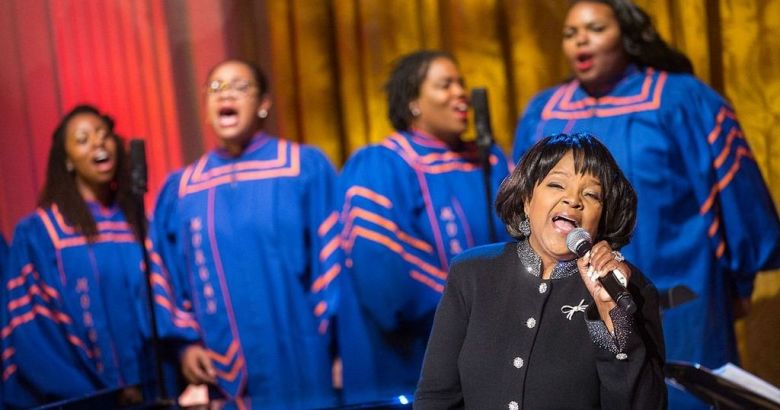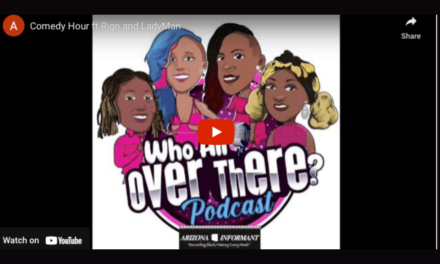

By Marnita Coleman
Special to the AFRO
Black lives do matter. As heart-wrenching as it was, slavery built this country into the economic power known today. Over the years, numerous contributions were made from African American ingenuity that impacted lives on this planet. Such as, inventions from George Washington Carver’s discovery of the many uses of peanuts, Garrett Morgan’s gas masks and traffic lights, and while unbeknown to her, Henrietta Lacks’ HeLa cells were vital in the development of the polio and COVID-19 vaccines.
Indeed, African Americans have placed an indelible mark on the world from agriculture to medicine. In turning the page to music creation, the global impact is equally as impressive in the genres of gospel, blues and jazz. Ingrained in the souls of enslaved Africans were musical roots that could not be forgotten. In harmony, they would moan and groan and eventually add the language of their captors to develop spirituals, songs that would one day be the origin of gospel music.
Gospel music has been a mainstay in Christianity since its beginning. The art form is a means to acknowledge and revere the Creator, encourage one another, and enjoy wholesome entertainment. It underpins worship services around the world, and prepares the hearts and minds of people to easily receive the spoken messages of hope, restoration and deliverance. The tempo varies and is commonly supported by organ, piano, bass guitar and drums. Gospel music is universally identified by four subgenres: traditional, contemporary, quartet style and praise and worship.
Although it was conceived in the African-American church, gospel music goes beyond the walls of sacred gatherings. Secular artists like Michael Jackson, Elvis Presley, Madonna, Kanye West, John Legend, Johnny Cash, U2, and Justin Timberlake, have used gospel choirs to enhance their performances. Gospel music is scattered throughout the world in non-Christian institutions such as public schools, communities, and the military. On any given day, it is played on radio, TV, internet, in film, arenas, sporting events and advertisements.

Gospel music influenced the blues, soul, rock and roll, pop, R&B, bebop and reggae. Now, the blues, another art form derived from African Americans originated in the Deep South in the 1800s. Initially, blues was not highly respected because the bluesmen and women were descendants of illiterate slaves and not skilled like servants able to function in reputable positions. Interestingly, the hip-hop music of today borrows from the blues of yesterday on just about every production.
Distinguished by its rhythm, guitar riffs, drum beats, shouts, grunts, chants and hollering, blues is about expressing raw emotions and telling it like it is. The global impact of the blues has positioned hip hop to the second highest-selling genre of music in the world. Top blues artists that performed around the globe include the King of the Blues, B.B. King, Muddy Waters, Eric Clapton, Etta James, and Elvis, Aretha Franklin, Jimi Hendrix, John Lennon and Led Zeppelin. Jazz, folk, rock and roll are offspring of the blues.
In 1918, James Reese Europe, a jazz bandleader, arranger and composer took jazz across the pond to expose it to the British. Europe’s infantry band performed for French and British soldiers introducing the new American jazz sound. This music shifted the social fabric throughout the world.
By the 1920s, American-life had changed. Folks sought economic empowerment and bold freedoms. When World War I ended, there was a sense of celebration in the land. Jazz quickly moved onto the scene with energetic dance styles and sassy looks allowing women the freedom of expression.
Women were unapologetic about new fashion trends, raising hemlines, shortening their hair, wearing sequined flapper dresses, form-fitting clothes, beaded jewelry, and smoking long-stemmed cigarettes. From Paris to London, New York to Hollywood, the styles indicated an evolution was at hand, and it did not stop there.
Literary works were also birthed during the jazz age by the likes of Langston Hughes, whose poetry, novels, and plays depicting Black life, made him a leading voice of the Harlem Renaissance. Notably, F. Scott Fitzgerald’s groundbreaking novel, The Great Gatsby was set in the jazz age too.
You see, good music requires no expiration and is ever expanding. Notice how each form of music became a seed that led to a greater form of music all of which was sourced from African roots. And even though Marcus Garvey desired for Blacks to return to Africa, the majority declined to do so. Instead, they pitched their tent in the land of their affliction, the place of opportunity and impacted the world.
Help us Continue to tell OUR Story and join the AFRO family as a member – subscribers are now members! Join here!
The post We’ve got the blues: Black dominated-genres are the basis for music today appeared first on AFRO American Newspapers .











